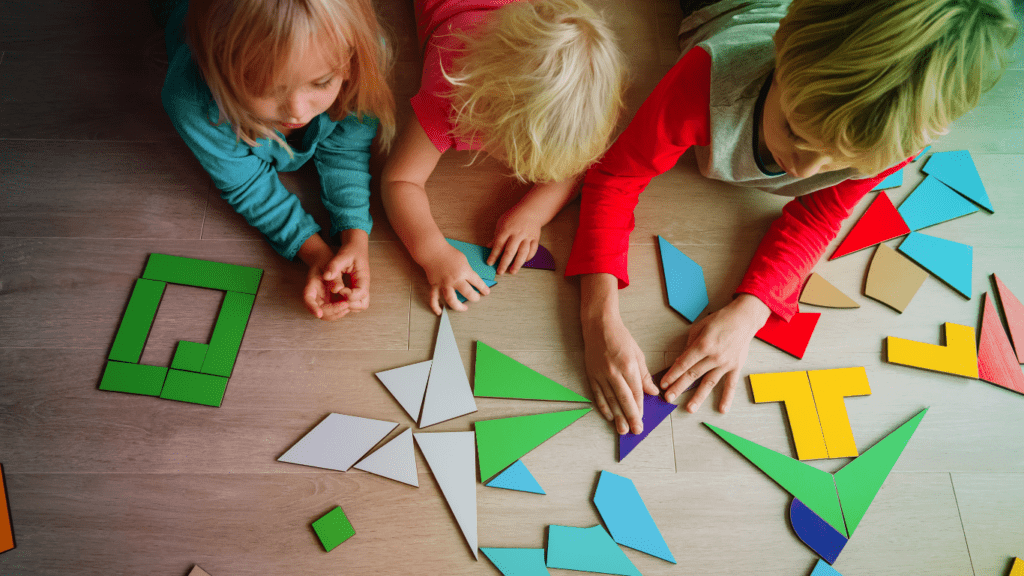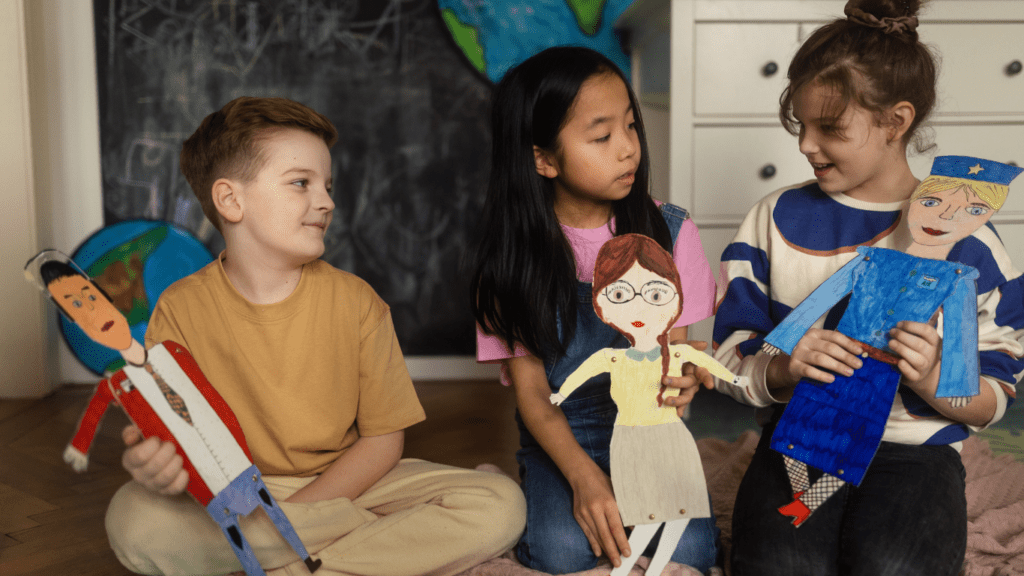Importance Of Emotional And Social Skills In Kids
Emotional and social skills directly influence how kids form relationships and handle conflicts. Developing these skills helps children express their emotions constructively, empathize with others, and navigate complex social settings. Without these abilities, they may struggle with communication, teamwork, or self-regulation in daily interactions.
Strong emotional and social foundations contribute to better academic performance, as kids with higher emotional intelligence often have improved focus and adaptability. For example, understanding emotions can help a child remain calm during exams or collaborate effectively during group activities. Studies by the Collaborative for Academic, Social, and Emotional Learning (CASEL) show that students participating in social-emotional programs scored 11% higher in academics compared to those who didn’t.
These skills also play a critical role in mental health. Children with strong emotional and social abilities tend to have lower instances of anxiety, depression, or behavioral issues. Teaching them how to manage emotions and maintain relationships fosters resilience, which is essential for coping with stress and setbacks as they grow.
By prioritizing emotional and social development from an early age, I enable children to thrive across various areas of life, ensuring long-term personal and interpersonal success.
Key Elements Of Emotional And Social Development
Understanding the primary elements of emotional and social development is critical to fostering these skills in children. These elements form the foundation that supports a child’s ability to:
- build relationships
- manage emotions
- navigate social environments effectively
1. Emotional Awareness
Emotional awareness is recognizing and understanding personal emotions and the emotions of others. This includes identifying feelings like joy, sadness, or anger and recognizing how these impact thoughts and behaviors. For example, teaching children to label their emotions during storytelling helps enhance this awareness.
2. Self-Regulation
Self-regulation involves managing emotions and reactions in different circumstances. Children who master self-regulation can control outbursts, follow instructions, and focus for extended periods. Activities like mindfulness exercises and breathing techniques strengthen these abilities.
3. Empathy
Empathy is understanding and respecting others’ feelings, fostering kindness and cooperation. Helping kids identify emotions in characters from books or films provides practical ways to develop empathy.
4. Communication Skills
Communication includes verbal and nonverbal expression, active listening, and comprehension of social cues. Group activities like role-playing or collaborative games enhance conversational and interpersonal abilities.
5. Problem-Solving
Problem-solving skills help children approach challenges logically and constructively. Board games and teamwork-based tasks teach kids to work toward solutions while managing disagreements.
6. Social Interaction
Social interaction involves forming connections with peers and adults and developing positive relational habits. Regular group activities like shared art projects or sports encourage collaboration and mutual respect.
7. Confidence
Confidence develops when children feel capable and valued. Encouraging participation in activities that match their interests, like performing in a play or completing a craft, boosts their self-esteem and willingness to try new things.
Activities To Foster Emotional Skills

Engaging in activities designed to develop emotional skills gives children the tools to understand, express, and regulate their emotions effectively. Incorporating these practices into daily routines encourages emotional growth in a supportive and fun way.
Role-Playing and Storytelling
Role-playing and storytelling create opportunities for children to explore emotions, practice empathy, and solve problems through imaginative scenarios. For example, they might act out a situation where they comfort a friend or read a story about a character overcoming challenges. These activities help children identify emotions, fostering both emotional awareness and empathy. Studies by the American Psychological Association highlight that role-playing supports perspective-taking, which strengthens emotional intelligence.
Journaling and Expressing Feelings
Journaling allows children to articulate their emotions and process experiences in a safe and private way. By encouraging them to write about their day or illustrate their feelings through art, journaling develops emotional awareness and self-reflection. For instance, children can write about a time they felt happy, sad, or frustrated, helping them understand their emotional responses. According to research from the University of Rochester, expressive writing can reduce stress and improve mood in children.
Mindfulness and Relaxation Exercises
Mindfulness and relaxation exercises teach children to focus and stay calm during emotional challenges. Breathing techniques like “belly breathing,” guided meditations, or yoga improve emotional regulation by reducing stress and promoting a sense of calm. For example, children can practice deep breathing when they feel overwhelmed or anxious. Research published in the journal Mindfulness shows that mindfulness activities enhance emotional well-being and reduce anxiety in children as young as four years old.
Activities To Foster Social Skills
Developing social skills involves encouraging interactions, cooperation, and empathy in children. Specific activities can make this learning process engaging while promoting connections with others.
Group-Based Collaborative Games
Team games require children to work together to achieve shared goals, strengthening their ability to cooperate and communicate. Games like “Capture the Flag” or group-building exercises such as assembling puzzles encourage teamwork and foster active listening. Simple activities like relay races help children learn to take turns, follow rules, and build trust with peers. These cooperative tasks enhance problem-solving and collaborative thinking in group settings.
Acts Of Kindness And Community Engagement
Encouraging acts of kindness cultivates empathy and a sense of belonging. Activities like writing thank-you notes to teachers or neighbors and volunteering at local shelters allow children to experience the value of giving. Organizing group projects, such as a neighborhood cleanup or creating care packages, provides them opportunities to see how their actions impact others. These experiences promote compassion, helping them recognize diverse needs and perspectives.
Conflict Resolution Practice And Skills Building
Practicing conflict resolution builds children’s ability to handle disagreements constructively. Role-playing common conflicts, like sharing toys or misunderstandings, helps kids identify solutions while improving their communication. I also recommend using “I feel” statements or collaborative problem-solving exercises to teach them self-expression and empathy during disputes. Skills-building activities, such as group discussions focusing on resolving hypothetical scenarios, empower children to approach conflicts calmly and respectfully.
Tips For Parents And Educators
- Encourage Open Communication
I create a safe space for children to share their thoughts and feelings. Listening without interrupting or judging helps build trust and encourages self-expression. Asking open-ended questions like “What made you happy today?” fosters deeper conversations.
- Model Emotional Regulation
Children often mirror adult behaviors. I demonstrate healthy ways to handle stress or disappointment, such as taking deep breaths or discussing emotions calmly. This teaches them practical strategies for managing their own emotions.
- Promote Empathy Through Discussions
Discussing how others might feel in certain situations nurtures empathy. I use books, movies, or real-life scenarios to help children consider another person’s perspective and emotions. Asking, “How do you think they felt?” strengthens their ability to empathize.
- Facilitate Collaborative Activities
Collaborative games and projects develop teamwork and communication skills. I organize activities like building puzzles or science experiments where children work together to achieve a common goal.
- Recognize And Praise Effort
Acknowledging a child’s effort rather than just their results boosts confidence. I focus on phrases like “I see how hard you worked on this” to reinforce perseverance and growth.
- Set Clear Boundaries
Consistency in rules and expectations provides children with a sense of security. I explain the reasons behind boundaries to help them understand their importance rather than seeing them as arbitrary.
- Teach Problem-Solving Skills
I guide children through problem-solving by discussing potential solutions and their consequences. Presenting scenarios like “What would you do if a friend took your toy?” helps them practice constructive approaches.
- Integrate Social-Emotional Learning (SEL) Resources
Incorporating SEL programs or tools supports structured learning. I use resources like emotion cards, educational apps, or SEL-focused storybooks to enhance understanding and engagement.
- Encourage Self-Reflection
Reflection activities, such as journaling or drawing, help children process their emotions and experiences. I provide opportunities for them to express themselves creatively, which aids emotional insight.
- Lead By Example
I consistently model respect, kindness, and cooperation in my interactions with others. Children learn best by observing, so embodying these traits sets a strong, positive example.





